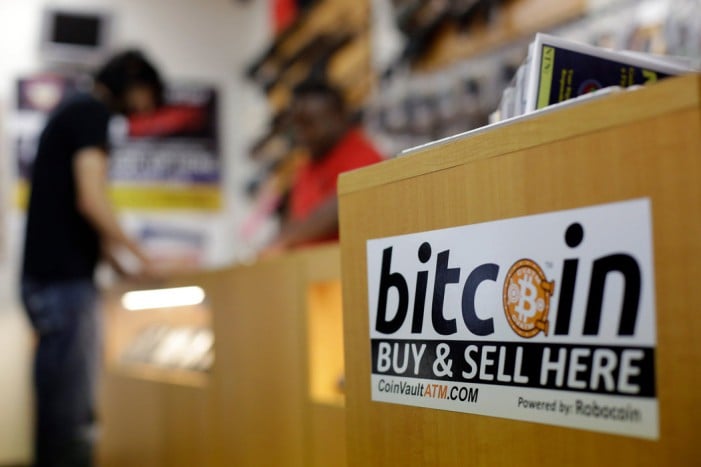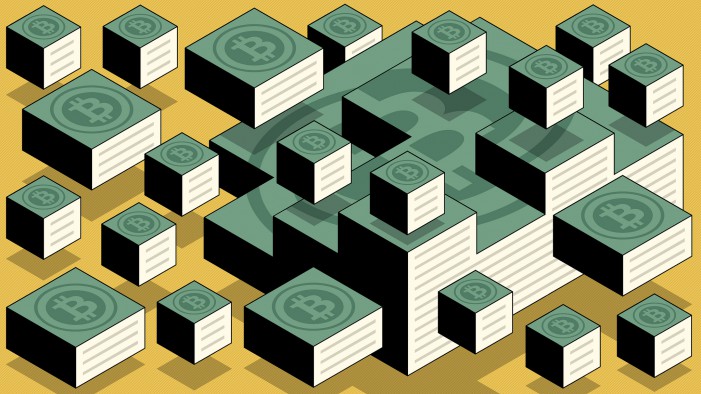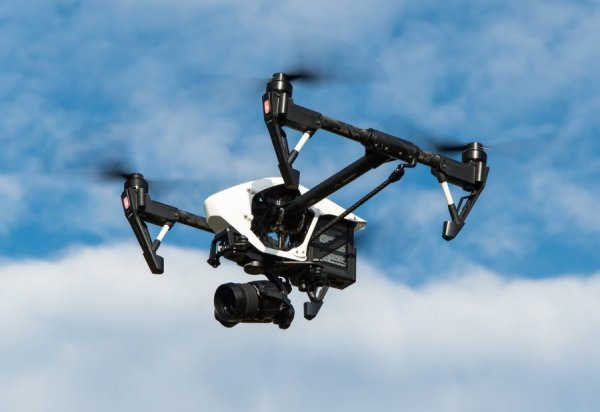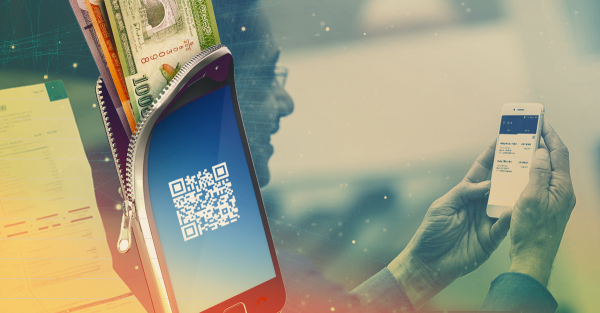
*This article is intended only as an academic discussion on the legality, process, and approach to investing in cryptocurrencies for Sri Lankans. It in no way endorses and/or encourages and/or promotes such investing and/or any particular investment platform and such investment and/or choosing of a platform should be at the sole discretion of the reader. Cryptocurrency investment carries a high degree of risk which could lead to the loss of most or all of invested capital. Neither the writer nor Roar takes any responsibility for such loss.
Sri Lankans are usually denied massive returns on investments due to the lack of accessibility to new investment opportunities, with even the boldest Sri Lankan investors restricted to investing in the Colombo Stock Exchange. It is nearly impossible for a Sri Lankan to own any shares in prominent companies such as Facebook, Snapchat, or Twitter, which have produced amazing returns for international investors in the recent past. Much of this is due to Sri Lanka’s strict foreign exchange control regulations, which severely limit any Rupees going out of the country, and which has even resulted in services such as Paypal not offering full functionality.
However, it seems counter-productive that citizens in an emerging economy such as Sri Lanka are denied such opportunities to actually profit and bring in wealth to the country. One such opportunity which has seen over 1000% gains over the last few years is investment into cryptocurrencies (known to most through its flagship currency: Bitcoins). A person who invested Rs.100,000 in Bitcoins in 2011 would have gained over one million dollars ($ 1,000,000) today. It is therefore time that Sri Lankans also got an opportunity to jump into this new gold rush, rather than be left behind when compared to the rest of the world.
What Are Cryptocurrencies?

Bitcoin exchange. Image courtesy The New York Times
A cryptocurrency is generally defined as a digital currency in which encryption techniques are used to regulate the generation of units of currency and verify the transfer of funds, operating independently of a central bank. In essence, the production of a cryptocurrency such as Bitcoin or Ethereum is decentralised and involves “mining” which, much like gold mining, requires complicated processors to solve equations which become increasingly difficult. Solving a set of equations known as a “block” rewards a miner with the issuance of units of a cryptocurrency. Since the supply of cryptocurrencies is finite, it creates a supply and demand which ultimately determine the “price” of a unit of such currency. Transactions using such cryptocurrencies are possible thanks to the invention of “the Blockchain”. The blockchain is an incorruptible digital ledger of economic transactions that can be programmed to record not just financial transactions but virtually everything of value. This makes these transactions completely anonymous and outside the control of any country or bank, bringing true financial freedom. The concept of cryptocurrencies and the invention of blockchain is credited to a person or persons by the name of Satoshi Nakamoto, and the flagship currency in the cryptocurrency world is “Bitcoins”, which has seen a massive rise in value over the last four years.
While the above extremely summarised description of cryptocurrencies seems formidable, all that an investor must essentially know is that cryptocurrency is like gold or any other commodity; its price fluctuates depending on supply and demand—but much more rapidly and steeply than any other commodity. There are over 800 different types of cryptocurrencies, with Bitcoin having the largest market capitalisation, followed by a cryptocurrency by the name of Ethereum. Each cryptocurrency has unique features, technology, and attributes but is based on the same general concept as Bitcoins. Much like real coins, these cryptocurrencies also require a “wallet” to store them.
What Are ICOs?

ICOs are how new cryptocurrencies enter the market. Image courtesy bdtechtalks
ICOs, short for Initial Coin Offerings, is how new cryptocurrencies get added to the market. Anyone with the required amount of technical expertise has the freedom to create a new cryptocurrency. This is similar to an Initial Public Offering (IPO) of a company where early investors are given shares of a certain company just before it is listed in a stock exchange. The ICOs seek to raise funds for different platforms and technologies through such initial offerings, but instead of shares, ICOs issue new cryptocurrencies which are later added to a coin trading platform and allowed to be traded.
But First, Is It Legal?
The main reason behind the success of cryptocurrencies is its freedom from regulation by any government or entity—which should be the case in Sri Lanka as well. While no new laws or regulations have been passed to regulate bitcoins in Sri Lanka, there are potentially a few laws in Sri Lanka which could have an impact on cryptocurrencies.
Essentially, financial services in Sri Lanka are governed by the Finance Business Act No 42 of 2011, and the Exchange of Money is governed by the Exchange Control Act.
Section 2(2) of the Finance Business Act states that:
(1) Subject to the provisions of section 3 of this Act, no person other than a person licensed under this Act shall carry on finance business.
(2) No person, other than a person licensed to carry on finance business under this Act or a person exempted from the application of the provisions of this Act in terms of section 3, shall accept deposits.
Section 74 defines Finance Business as follows;
“finance business” means the business of acceptance of deposits, and
(a) the lending of money; or
(b) the investment of money in any manner whatsoever; or
(c) the lending of money and the investment of money in any manner whatsoever;
Section 5 of the Exchange Control Act states that:
(1) Except with the permission of the Bank-
(a) no person, other than an authorized dealer, shall in Sri Lanka buy, borrow or accept any gold or foreign currency from, or sell or lend any gold or foreign currency to, or exchange any foreign currency with, any person other than an authorized dealer, and
(b) no person resident in Sri Lanka, other than an authorized dealer, shall, outside Sri Lanka, buy or borrow any gold or foreign currency from, or sell or lend any gold or foreign currency to, any person other than an authorized dealer:
Provided that the preceding provisions of this subsection shall not prohibit the sale and purchase at any post office in Sri Lanka, in accordance with such directions as may be given by the bank in regard thereto, of any foreign currency in the form of postal orders or money orders.
(2) Except with the previous general or special permission of the bank, no person, whether an authorized dealer or not, shall enter into any transaction which involves the conversion of Sri Lanka currency into foreign currency or foreign currency into Sri Lanka currency at rates of exchange other than the rates for the time being authorized by subsection (3) of section 76 of the Monetary Law Act.
While at first sight it appears as if the Sri Lankan government has well and truly ruined the chances of cryptocurrency investment by these two Acts, it is possible to argue that cryptocurrencies are completely outside the purview of these two Acts for the simple reason that cryptocurrencies are not “currencies” but simply “goods” or “commodities”.
As far as the law in Sri Lanka is concerned, with the exception of contraband, there are no laws which prevent any person from purchasing goods such as a football, a pack of Pokémon cards or Bitcoins. This argument is further strengthened by the fact that “currency” has been defined in this Act as including coins, currency notes, bank notes, postal orders, money orders, cheques, drafts, travellers’ cheques, letters of credit, bills of exchange and promissory notes. By applying the rules of interpretation, it is possible to argue that cryptocurrencies do not fall under this definition. Any investment into cryptocurrencies should be viewed in the simple context of buying goods or commodities; the fact that the value of such a purchased good or commodity fluctuates is immaterial.
It must be noted, however, that the use of cryptocurrencies for prohibited activities such as money laundering, smuggling, fraud etc., will result in prosecution regardless of the legality of cryptocurrencies.
Where To Buy/Sell
The buying of cryptocurrencies is severely limited to Sri Lankans due to the unavailability of a Sri Lankan cryptocurrency exchange, thereby requiring Sri Lankans to rely on international exchanges which require complicated verification procedures and transfer of foreign exchange. However, there are two reputable services which allow the purchase of Bitcoins, Etherium, and other major currencies:Cex.io and Changelly.com.
While Cex.io is a proper bitcoin exchange, changelly.com only offers instant buying of the coins. It is therefore advisable to use cex.io for advanced trading functions and to get better prices on cryptocurrencies. The verification process is fairly easy and fast and once verified, it is possible to purchase bitcoins and Ethereum through credit cards. Once again, the argument that a user is simply purchasing goods or a commodity should apply when making these purchases through a credit card— which technically brings it outside exchange control regulations.
Once a certain amount of primary currencies such as Bitcoin or Etherium is purchased in the above manner, it is possible to convert these into any other cryptocurrency through major exchanges such as Coinbase by transferring the coins without the need for complicated verification or bank transfers. Be sure to use secure passwords and wallets to safeguard your purchased currencies, as there have been a number of hacking attempts with regard to cryptocurrencies. Depending on the performance of your coins, you can cash out at any point through cex.io and the funds will be debited back to the credit card you used to purchase the coins.
Investing in ICOs carries a bit more risk than simply purchasing established coins since there can be scam ICOs. Always conduct proper research before purchasing ICO options.
Conclusion
While the above is a highly summarised guide on cryptocurrencies in Sri Lanka, it is only possible to become an expert investor into cryptocurrencies after practically being involved in the process. Much care should be taken before making any investment and any such investment should only be done with disposable income an investor is prepared to lose in its entirety in a worst case scenario.
Sri Lankan authorities must also focus on the formation of a local cryptocurrency exchange and the adoption of cryptocurrencies for transactions in much the same way the rest of the world is advancing. This could essentially make transactions much more convenient and faster, which would greatly benefit the country’s lagging economy.
Featured image courtesy forbes.com




.jpg?w=600)



